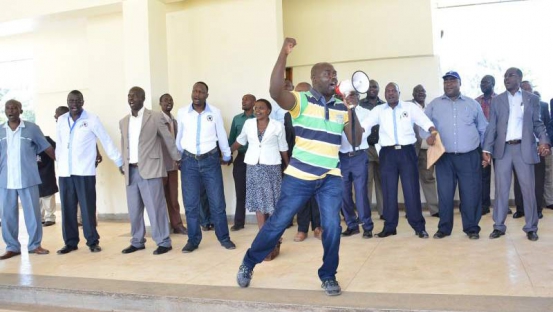×
The Standard e-Paper
Stay Informed, Even Offline

As has become routine in dealing with industrial actions, the government appears to have conned the academics’ union into calling off their strike with little to show for the two-month campaign.
If confirmed, it will worsen the low morale among academics occasioned by recent gazettement of university councils and confusion surrounding implementation of guidelines for the appointment and promotion of academic staff.







